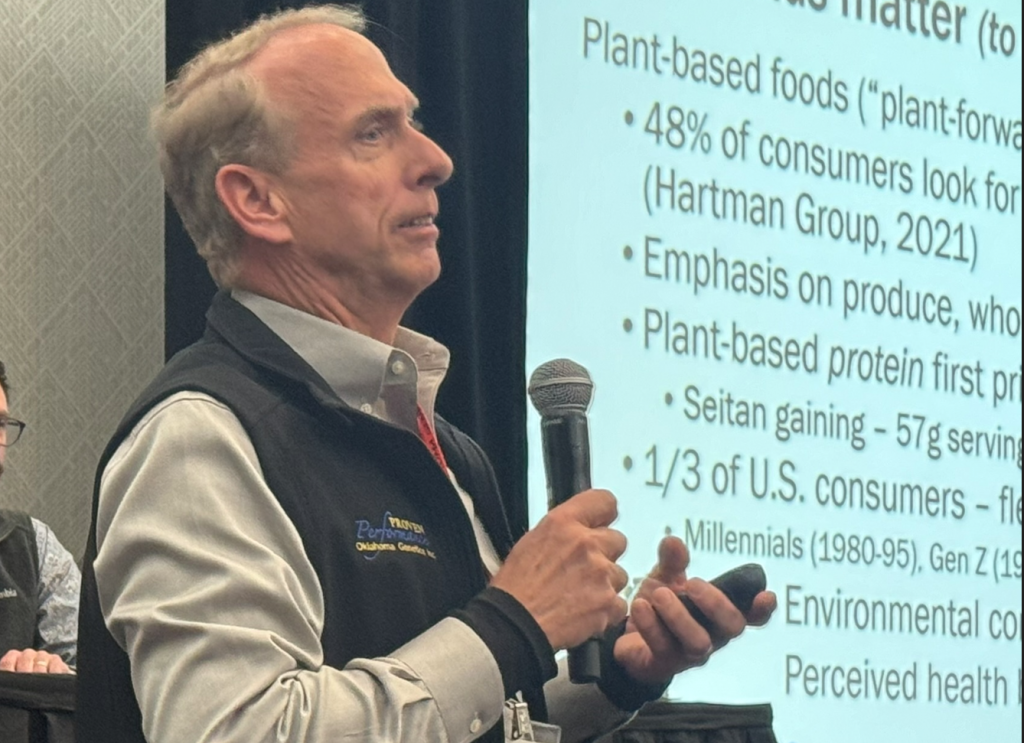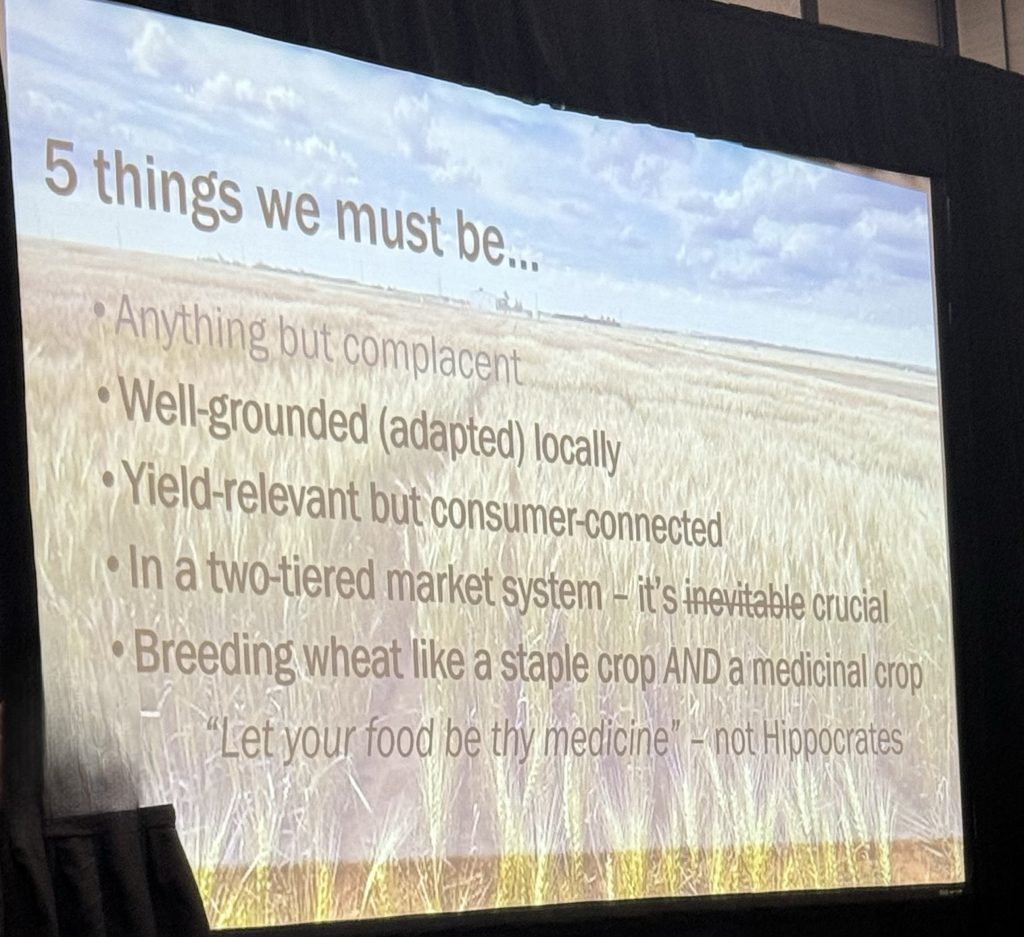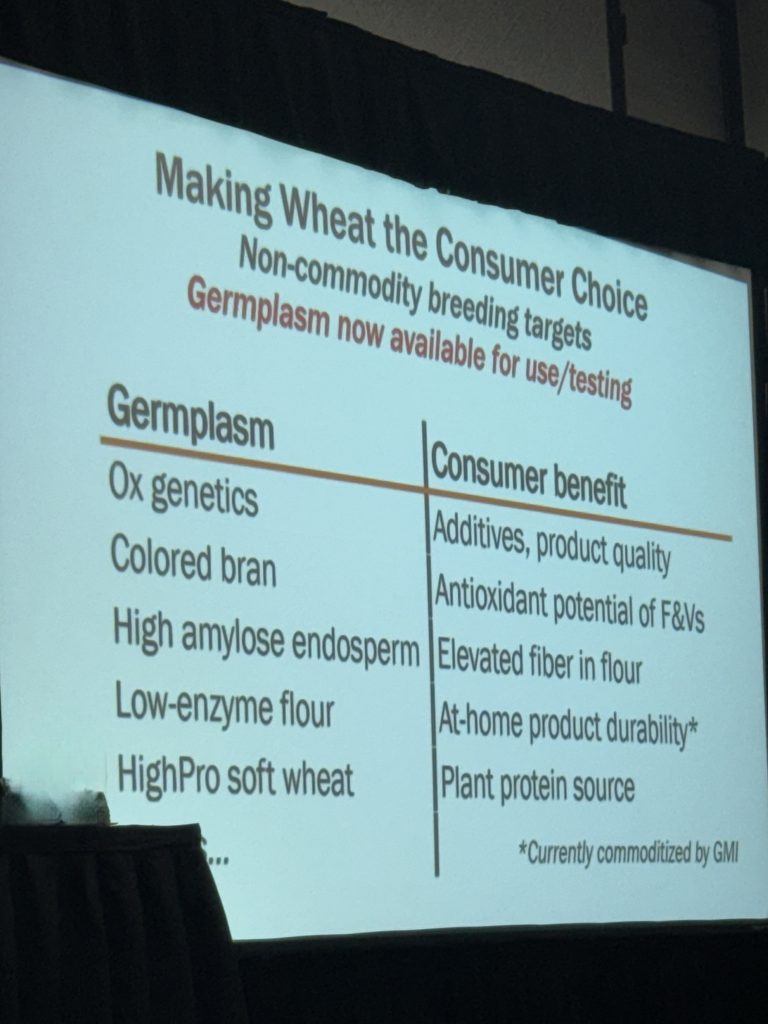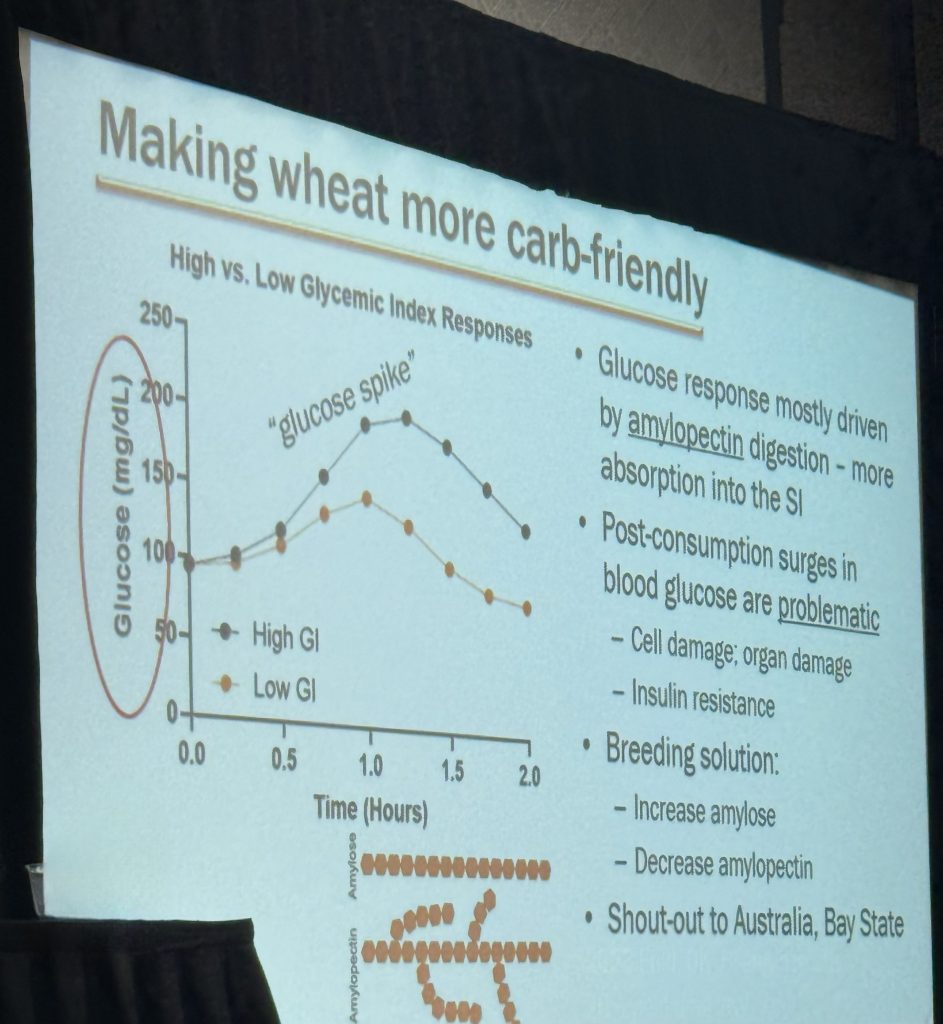
At the OCIA/OGI Meeting in Oklahoma City, Farm Director KC Sheperd had the chance to catch up with regents professor and wheat genetics chair in the Oklahoma State University Department of Plant and Soil Sciences, Dr. Brett Carver.
In a panel discussion at the meetings, Carver discussed how being different can add value to the wheat produced here in Oklahoma.

“There are a lot of people producing wheat outside of America, and we have some pretty stiff competition,” Carver said. “The only way we are going to top that competition is to be different. Be yield relevant, but different.”
Being different, Carver said, means having the ability to connect to a consumer base that wants to see something different in the grocery store. Carver said one area for growth in the consumer connections department is on the gluten side of things.
“We are not changing the gluten to make it less problematic to those who are sensitive to it,” Carver said.
While conversations surrounding gluten are a big trend, Carver said the biggest trend is conversations about the carbohydrates found in wheat products.
“We are so much more in tune now with our gut health, and we need to address that in every food product we consume,” Carver said. “If we can make our gut happy, I think our bodies are going to be happy overall.”
What is the wheat industry’s role in gut health? Carver said it begins with looking at different kinds of starches, and fiber solutions.

“We know we have the genetics for potentially a better fiber product, but we don’t have the test yet to say it is definitely a better fiber product,” Carver said. “That, I will know within the next six months. I think given what we have genetically and what has already been proven with other genetics, I think we have it, and I think we have a good fiber solution.”
As fiber is a necessary component in the healthy digestion of foods, Carver said wheat is an important part of the puzzle.
“There are a lot of options out there in terms of how we might make wheat a more health-promotive part of our diet, so I am just trying to grab some of that low-hanging fruit,” Carver said. “The lowest hanging fruit to me is in the carbohydrates.”


















